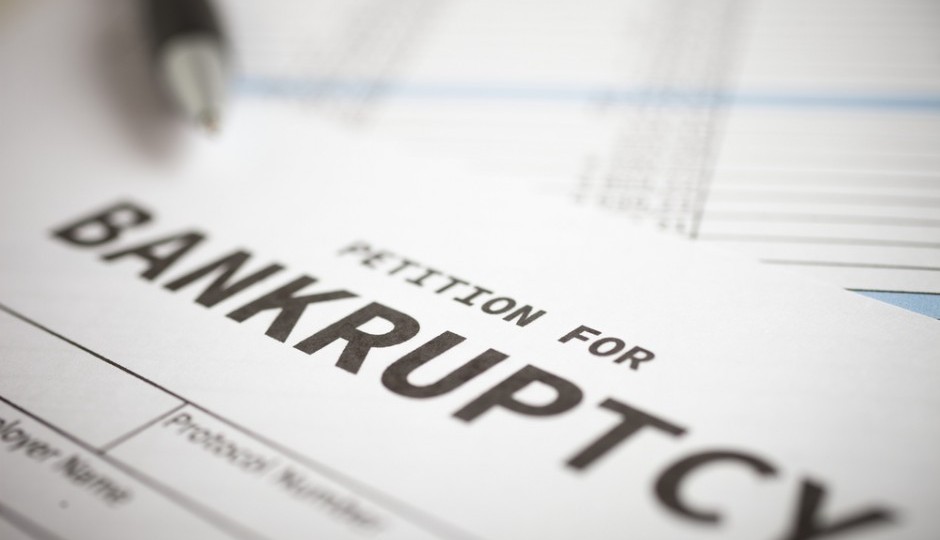Should the School District Declare Bankruptcy?
Not long ago, it was rare, almost unthinkable, for cities and school districts to declare bankruptcy. Even when they did it wasn’t a panacea. Sure debt was restructured, creditors were put at bay for a while. But towns didn’t get to wipe the ledger clean and start afresh just by declaring bankruptcy.
Then came Detroit. After the city declared bankruptcy in 2013, the court eliminated $7 billion Detroit’s debt in one fell swoop. The city was authorized to borrow a fresh $1.4 billion to invest in city services. Pensioners made out pretty well. And there are now credible reasons to think the city is recovering, at least a little.
Sure would be dreamy if the School District of Philadelphia could do the same, right? Whoosh, $1.45 billion in debt payments over the next five years wiped away just like that. There’d be an extra $276 million this year alone. As Larry Platt at the Philadelphia Citizen writes, that’s enough to “hire roughly 1,000 more teachers and provide each student with an iPad.”
“How come nobody talks about this? At the height of the Great Recession, a whole host of banks were deemed too big to fail. How about considering the Philadelphia School District too important to fail? After all, banks restructure loans all the time. Why not restructure the debt currently choking the District—threatening bankruptcy, if need be—in exchange for real reform commitments?”
Platt doesn’t say what those reform commitments should be, but the notion of the district declaring bankruptcy is certainly intriguing. The district is very close to insolvency. It’s debt load is roughly 10 times the national average for school districts. The only thing that’s kept it afloat in recent years is borrowing cash and last-second revenue infusions from the state and the city.
If the School District were a corporation, it surely would have entered Chapter 11 and restructured years ago.
But it’s not. And bankruptcy is likely impossible without a dramatic change in the district’s core governance structure, one that Platt and other reform advocates would find horribly unpalatable. Even then it would be a really bad idea. More on that in a moment.
First, Platt makes another couple arguments in his piece that are worth addressing. I’m paraphrasing him here.
1. The district’s budget is $2.6 billion. That’s a lot! How is that possibly not enough? Surely the problem is how we’re spending it.
Not really. No doubt the district could spend its money more efficiently. But believe it or not, city schools are, comparatively, quite cost efficient. The district spends less per student than the average Pennsylvania school district does, despite a) being in the most expensive labor market in the state and b) educating a student population that faces many more challenges outside school than do suburban students. Education in America is an expensive proposition, and maybe it should be much cheaper than it is. But I’m not sure it’s fair or realistic to expect the School District of Philadelphia to figure out how to deliver high quality education on the cheap before any other district has.
2. Too little cash goes to classrooms. Writes Platt, “Only 45 cents of every dollar allocated for District schools went to instruction…”
Well, that’s only true if you conclude that payments to charter schools and special ed funding aren’t classroom expenditures, which is a peculiar definition of classroom spending.
But back to the bankruptcy question. Why wouldn’t it work?
To begin with, there’s something called the State Aid Intercept Program, which gives district bond holders a guarantee that, even if the district defaults, state funding for the district would flow to the bondholders until they were made whole. That’s right. If the district shorts creditors, the state shorts the district. This isn’t something a friendly Governor could table. It’s the law, and it’s hard to conceive of the Republican legislature changing it.
“Could you imagine what the banks would do? They would go ballistic on the Republicans. A Republican legislature is not going to take away a fundamental protection of the biggest financial institutions in the state,” says Michael Masch, the former state budget secretary and former chief business officer for the school district.
Ok, says Platt, well how about returning the school district to local control, “so we can declare bankruptcy and reorganize—using Detroit’s forthcoming renaissance as a model?”
That doesn’t change a thing. The state intercepts would still apply, Masch says, and the city’s bond rating could be at risk as well.
“How can you have one arm of the same government have a surplus and the other has a deficit, and claim you only want the part with the deficit to go bankrupt?” asks Uri Monson, Montgomery County’s CFO and the former executive director of PICA, which oversees the city’s long-term financial planning.
The only way the district could plausibly declare bankruptcy, then, would be for the legislature to rescind the intercepts and for the school district to become completely independent from the state and City Hall. That means an elected school board and taxing power. This is … an unlikely series of events. Let’s imagine, though, that it did happen. Would the district get the sweetheart deal that Detroit did? Or would bankruptcy just result in modestly restructured debt, as is usually the case? And would that be worth badly damaging the credit of the new, independent district?
Look, I get what Platt is trying to do here. We really do need to get past these annual spectacles where the district begs for investment and the city and state come up with just enough cash to keep schools operating. It’s a wretched dynamic. Nor am I one who thinks money alone will solve the district’s many problems.
But more money is an absolutely essential first step. It is. The state and the city are under-investing in city schools. Full stop. Pretending that bankruptcy or some other fictional wand-waving will change that fact is a distraction.
